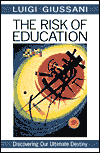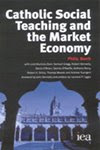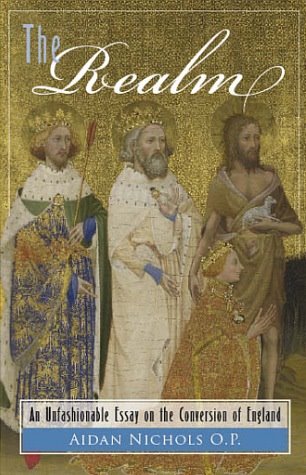Political religion
John Roskam of the Institute of Public Affairs has an excellent op-ed piece in the Age newspaper today, entitled "Politicians find religion a cross to bear". I have met John, and he is a thoughtful chap. His topic is the role of religion in politics, and the current effort to de-legitimise the opinions and political involvement of Christians and other believers. He singles out the verbal rough-housing of Tony Abbott over the last few years (fortunately, Tony is a pretty tough character), and highlights Tony Blair’s recent revelation that his Christian beliefs had to be concealed during his political career.
Roskam’s article references a major debate in modern political philosophy. On one hand, defenders of liberalism claim that liberal democracy, unlike other forms of government, is neutral towards different ideas about the best form of life, treating all equally. They claim that its emphasis on autonomy leaves individuals free to pursue the good as they see fit, and does not impose any single conception of the good. Indeed, it forbids such imposition, and it is on this ground that religiously-based arguments are ruled illegitimate. Only purely secular, “reasonable” arguments should be heard. This view is closely associated with the 20th century philosopher John Rawls.
Liberalism’s growing band of critics argue that its claim of neutrality is bogus. They point out that liberalism’s emphasis on autonomy contains a hidden idea about the best kind of life: the autonomous life, free of the encumbrance of relationship or commitment. This is coupled with a narrow concept of “scientific” reason that de-legitimises other forms of knowing, particularly revelation.
As David L. Schindler points out, the identification of freedom with choice (and we could add, reason with science) so ingrained that we almost automatically assume these definitions. This is particularly true in English-speaking countries. But there are other, wider ideas of freedom and reason that liberalism discounts.
I think that the critics are right. I don’t accept the liberal claim that politics can be separated from moral and metaphysical claims. What we believe about human nature and truth will matter to our political ideas.
This debate is not just theoretical. In Britain, the Parliament has already taken steps against funding of Catholic adoption agencies, effectively shutting them down, and is threatening to take further steps against Catholic schools, on the grounds that these institutions embody non-neutral "doctrinaire" beliefs. But their pretence of neutrality is false. They have their own beliefs that they wish to impose, and they control a machinery of state that is so pervasive that few can resist its power.
Those who argue that religious voices shouldn’t be heard in the public square are pulling a fast one. They ask us to accept up front that our own views are not politically acceptable. But at the same time they expect us to allow them to impose their own concept of good and right.
This deceptiveness often masks the robust anti-Catholicism that is never far from the surface of the liberal English-speaking world. We shouldn’t be too worried by this, partly because the disease seems less common in Australia than in Britain, but mainly because Jesus told us not to worry: “I have conquered the world”. At the same time, we should not be naïve. There are plenty of people in our political system who do not regard us as legitimate. We must employ all wits to deal with them, and retain our place in the political process.





5 comments:
Hi, Its John from Kyenton.
Where is your discriminative intelligence?
Roskam has as much real intelligence as the Tin Man from the Wizard of Oz.
He is so one dimensional as to be painful.As are all of his articles in the Age. He is a thorough-going scientific materialist, as is the IPA altogether.
Capitalism, for which he is an apologist, is the "culture" formed in the image of the dismal anti-human reductionism of scientific materialism. It is an extreme form of social Darwinism or a "culture" based on the war of all against All and everything.It is a "culture" of death. See.
1. www.dabase.org/spacetim.htm
He also has this typical "right" wing pretense that his point of view is free of any kind of ideological bias or expresses some kind of timeless "truth".
And, as a corollary, it is only those on the "left" who are motivated by ideology, and who wish to engage in social engineeering experiments.
This reference sums up the state of the world body politic created capitalism, the world's largest and most "successful" exercise in mass social engineering---brought to one and all by the propaganda (idiot box ---insanity machine) in the "living" room. TV.
1. www.ispeace723.org/realityhumanity2.html
Plus these two references describe the mind set which Roskam subscribes to---and on which capitalism is based. A world completely devoid of, and completely hostile to, any kind of spiritual depth.
1. www.dabase.org/ilchurst.htm
2. www.aboutadidam.org/readings.asana_of_science/index.html
Hi, Its John again. You might find this quote interesting. It is from the author of the references in my first posting.It is critique of the "religion" that Roskam defends and promotes.
"What is commonly recognized and sometimes defended as religion in our Age is only the most superficial and factional and dim-minded and perverse expression of ancient national and tribal cultism... In the Age of worldwide political and social interdependence, of super techology space migration, and the atomic bomb, and of the esoteric sciences of the kind initiated by intellectual geniuses such as Einstein, the people must not fail to be equipped with a true, practical, supremely intelligent, universal, and full esoteric understanding and practice of spiiritual religion. If they remain in the embrace of the archaic, myth-laden, exoteric, divisive religions of the past, thet will only be subject to exploitation and negative dominance by the superior esotericism and popular persuasiveness of scientific materialism. To persist in the old cults is, in effect, to be bereft of religion in the Age that is upon us."
That was written in 1980. 27 years later the situation far worse.
Hi John, sorry for the delay in responding, I only get to the computer fairly infrequently.
You're very tough on Roskam! I'd probably agree that he is one of those who practices the "hidden metaphysics" of liberalism: ego-driven autonomy. Nevertheless that doesn't mean he isn't thoughtful. Even thoughtful people make mistakes and unjustified assumptions - assume error before assuming malice!
Thanks for the references, I found them quite interesting. I assume that the Not-Two philosophy of "prior unity" is a reference to Advaita philosophy?
However, I think that attempts to create "prior unity" are what went wrong with the political religions of the 20th century like fascism and communism. It is a case of what Voegelin would call "immanentising the eschaton": attempting to realise the Kingdom of God in this world. Of course, as a Christian I think this will finally happen - but not on our initiative.
What we believe about human nature and truth will matter to our political ideas.
This is certainly true, but apart from ideological denial of this truth, there appears to be a tendency among politicians to inform their policy decisions from polls and trends, rather than their personal beliefs. Obama suggests that this is how Clinton has been operating all along. We have also heard many politicans who call themselves Catholic mount the mantra "I am personally opposed to X but as a public servant I must go with Y". They claim that sacrificing their personal beliefs is a noble act, when in fact what they are doing is betraying their constituents. Assuming that they really do have personal opposition to X, then they withhold their principles from the people they are meant to serve. What is worse, they are showing that they cannot be trusted anyway, since they are willing to publicly advocate decisions that they disagree with. (This is not the same thing as being in the losing minority for a given policy vote.)
As for John Roskam, I am neither familiar with him nor his writings. I must note that the critiques of John from Kyenton, while pointing out references, were not about John Roskam's writings in particular. A bit too dismissive and brief to present what one might expect to support the dismissal. For all I know, he is correct about Mr. Roskam. I am only stating that the above critiques seem too general to illustrate and substantiate the conclusions.
Hmm... now that I've read Mr. Roskam's piece on politicians and religion, I'm more puzzled than ever. Perhaps this particular essay is not quite the specimen which leads John of Kyenton to make such conclusions about Mr. Roskam.
Post a Comment